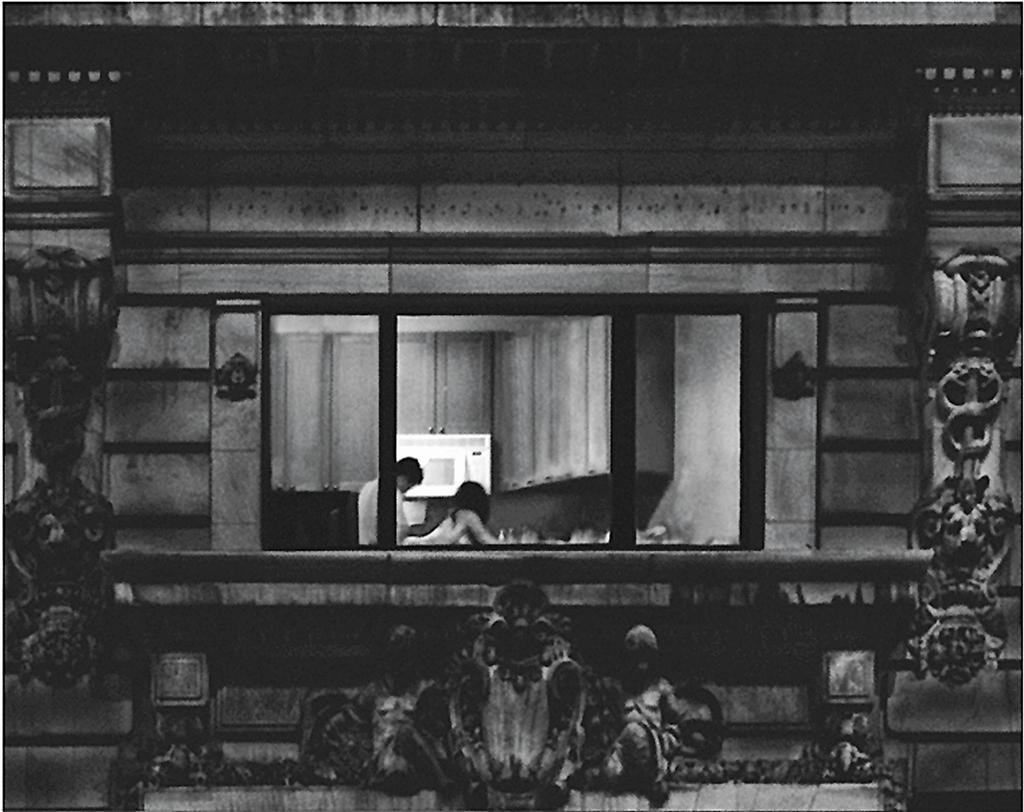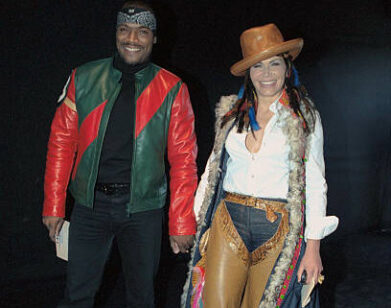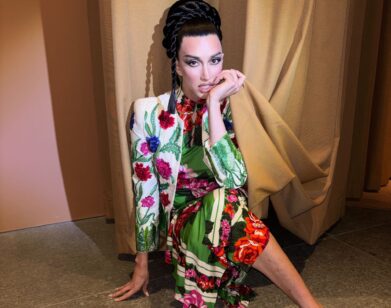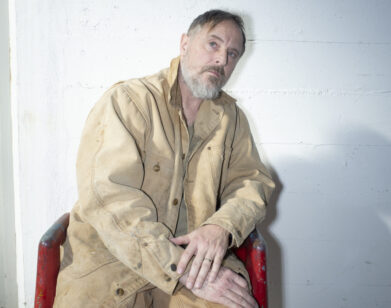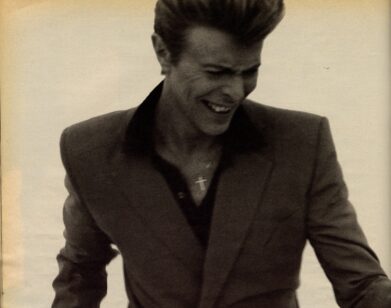Yasmine Chatila
Yasmine Chatila is a 33-year-old artist whose work I encountered recently at Edelman Arts. Her computer-manipulated photos of New York city-scapes express a romantic view of urban living, by turns haunting, sad, amusing, and sublime.
Glenn O’Brien: How did this work come about?
Yasmine Chatila: One weekend there was a massive snowstorm, and I was pretty much snowed in. My neighbor, a filmmaker, had an amazing movie library and we decided to have our own film festival. I noticed some binoculars on his windowsill, and he told me he was spying on his neighbors across the street. I went home kind of creeped out. That same evening I was watching TV, and a curtain that was hiding my living space literally collapsed onto the floor. And I suddenly became very self-conscious of what I was doing. So I borrowed his binoculars and decided to look at the people who were now spying on me in my imagination. I was amazed at the theater of life taking place behind those windows
GO: So you pulled out your camera?
YC: I initially took photos to solidify the moments I was witnessing. Just for my own record. But once they were on my computer, I started to repaint them manually on Photoshop. The images were blurred and recontextualized, collaged into different homes and locations. That’s when I understood that this was more than a freaky activity-it was a gold mine for exploring human nature.
GO: Before this “film festival,” had you ever thought about voyeurism?
YC: Really, it never crossed my mind.
GO: I’m guessing it’s more of a male pursuit.
YC: I do like to eavesdrop, sometimes. [laughs] I have to stress that the voyeurism I am doing is not erotic in nature. It’s much more scientific. I couldn’t care less to see them having sex, although I was surprised that the sex one was the first to sell out of the edition. I am much more interested in looking at people when they are totally unselfconscious and uninhibited by social masks. The best ones, to me, are of people alone in their homes.
My goal is to capture the moment and distill its essence without exposing anyone’s identity. I am not interested in who these people really are. Not knowing allows me the freedom to project onto them and fill in the gaps with my imagination.
GO: Since you started this work, have you felt as if you were being spied on?
YC: Yeah, constantly now. And I think people who see the work become more self-conscious of themselves and their homes. Someone told me that New York City has the highest sales of binoculars in the country.
GO: I find it interesting that people in glass buildings-like the Richard Meier buildings on the river-have no curtains.
YC: I have a friend who lives there. I said, “Come on, everyone can see you!” He said, “Well, they’re too far away, and I don’t care.” [laughs] I think some people just live in front of their windows. It seems to me that the lonelier ones don’t close their curtains. Maybe they have an imaginary witness to their lives, and it keeps them from feeling so lonely. That’s my secret theory.
GO: An atheist’s substitute for God.
YC: [laughs] Yes, the anonymous voyeur eye.
GO: So what has this work done for you?
YC: Spending time with strangers has brought me closer to humanity. When I walk in the street I no longer feel surrounded by anonymous drones. I see people with their insecurities and their vulnerabilities. It has inspired a feeling of being connected to others.

